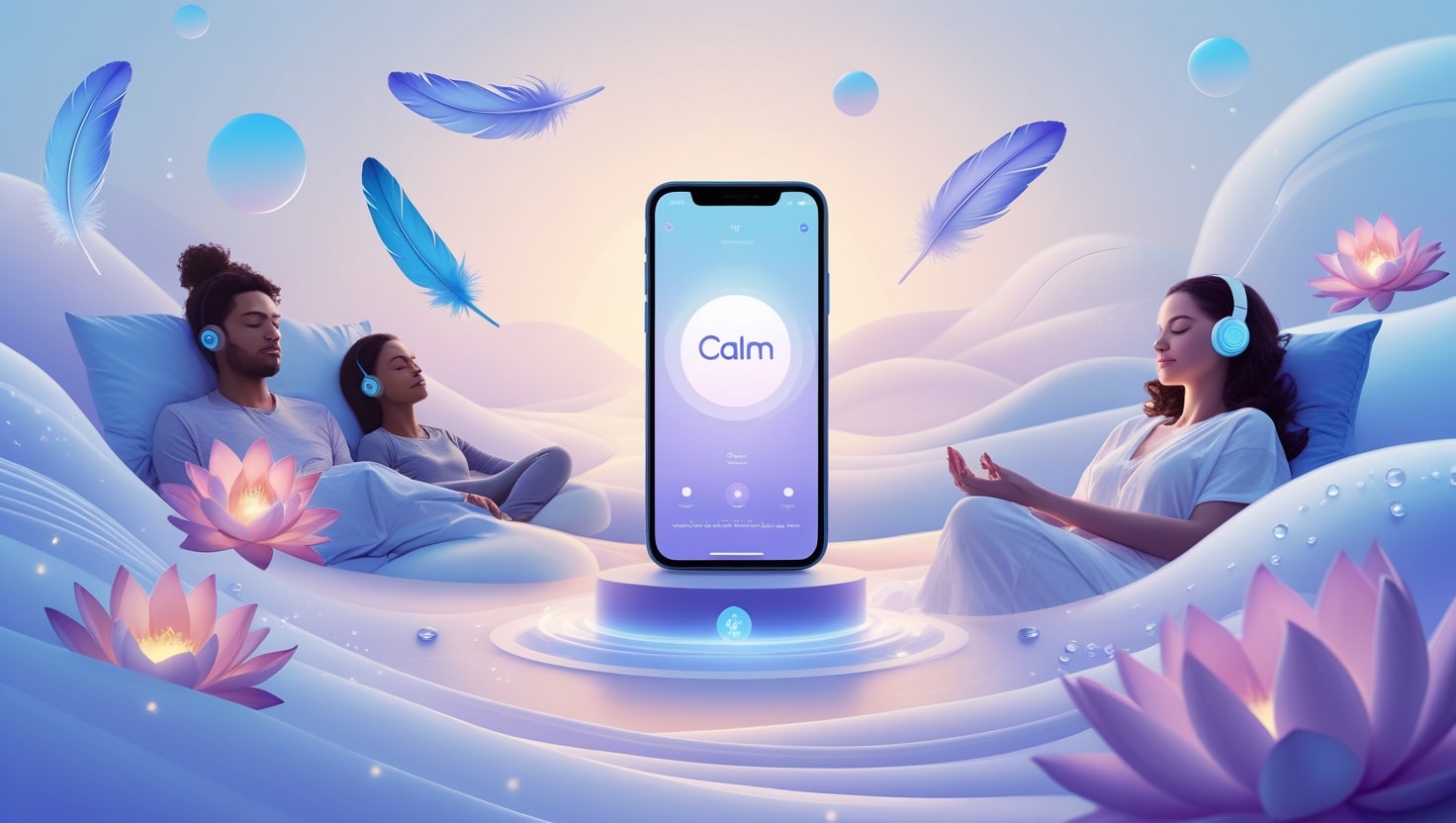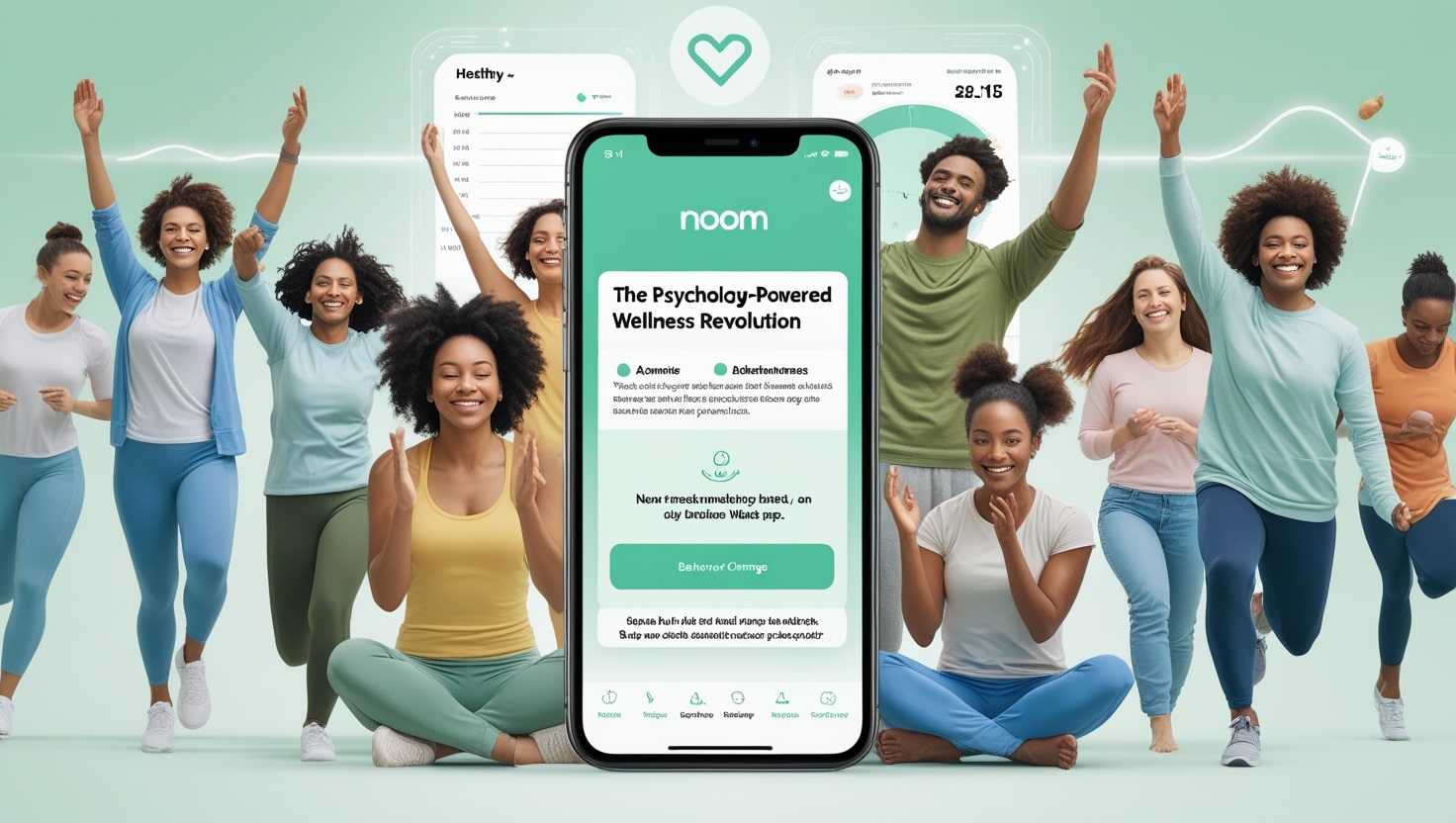Calm's Rise to Global Mindfulness: The Story of the World’s Most Loved Meditation App
In a world increasingly plagued by stress, anxiety, and insomnia, one app stood out by offering a simple promise: peace. Calm, the meditation and mental wellness app, has become a household name, used by millions to find calmness amid the chaos of daily life. But the journey to becoming the world’s most popular mental wellness app wasn't so serene.
This is the story of how Calm turned meditation into a mainstream movement, built a billion-dollar business, and helped the world breathe a little easier.
The Beginning: A Vision of Inner Peace
Calm was co-founded in 2012 by Michael Acton Smith, a British entrepreneur, and Alex Tew, the creator of the viral Million Dollar Homepage. Acton Smith had previously founded Moshi Monsters, a wildly successful children’s game, but after experiencing burnout, he turned to meditation for relief.
Realizing the massive benefits of mindfulness and the lack of accessible tools to practice it, he teamed up with Tew to create Calm — a platform to help people reduce stress, improve sleep, and live more mindfully using guided meditations and soothing content.
Their mission was clear from day one: make the world healthier and happier through the power of meditation and mindfulness.
Early Struggles and Product Development
The early days of Calm were not easy. The market for meditation apps was niche, and investors were skeptical. The founders bootstrapped the company and focused on building a simple, elegant product with a serene user experience. They emphasized quality content, ambient music, and minimalist design.
Initially, Calm offered basic meditation techniques, but as user feedback poured in, the team expanded features. They added new programs for:
Sleep stories narrated by soothing voices
Music for focus, relaxation, or sleep
Breathing exercises
Daily mindfulness reminders
Slowly, users began to find value in the app. Word-of-mouth spread, and Calm started to attract a loyal user base.
Calm's Unique Features and Differentiators
Calm wasn’t just another meditation app. It offered several features that made it stand out:
Sleep Stories: A groundbreaking feature, Calm’s sleep stories — narrated by voices like Matthew McConaughey and Idris Elba — became an instant hit, helping millions fall asleep faster.
High-Quality Guided Meditations: Sessions led by mindfulness experts like Tamara Levitt and Jeff Warren, covering anxiety, focus, relationships, and more.
Celebrity Partnerships: Collaborations with LeBron James, who created content for athletes and mental resilience, brought credibility and global appeal.
Beautiful Soundscapes: Calming nature sounds and music tracks composed by award-winning artists.
Daily Calm: A new 10-minute meditation each day, keeping users engaged and consistent.
Business Model and Monetization
Calm operates on a freemium model:
Users get basic features free.
Premium subscription ($69.99/year or $399.99 lifetime) unlocks all content, including Sleep Stories, masterclasses, and exclusive music.
The simplicity of the subscription model created steady, recurring revenue. By 2017, Calm had reached over 8 million downloads and was generating significant revenue from its loyal user base.
Rapid Growth and Recognition
2018 was a turning point for Calm. The app exploded in popularity as stress and sleep issues became more mainstream topics. Key milestones included:
App of the Year by Apple (2017)
100 million+ downloads by 2020
Over 4 million paying subscribers
By 2020, Calm became the first mental wellness unicorn, valued at $1 billion after raising $88 million in funding.
Its growth was fueled by increasing global demand for:
Mental health support
Remote wellness tools
Sleep improvement during the COVID-19 pandemic
Strategic Partnerships
Calm expanded its ecosystem through creative partnerships:
American Airlines: Offered Calm content on in-flight entertainment
Samsung Health: Integrated Calm’s meditations into its fitness ecosystem
Amazon Alexa: Enabled voice-activated Calm sessions
These partnerships increased visibility and expanded Calm’s reach into homes, flights, and devices worldwide.
Calm for Business
Recognizing the rising importance of mental wellness at work, Calm launched Calm for Business, offering subscriptions for employees as part of workplace wellness programs. Companies like Google, Salesforce, and GE adopted Calm for their employees.
This B2B vertical opened a new revenue stream and positioned Calm as a leader in corporate mental health.
Celebrity and Cultural Impact
From being a niche meditation tool to a pop culture reference, Calm became part of everyday life. Highlights include:
LeBron James’s partnership campaign: "Train Your Mind"
Spotify collaborations: Calm’s music and meditations available on playlists
Calm’s voice narrating a Democratic debate ad break in 2019, surprising viewers with a moment of zen
Calm was no longer just an app — it was a cultural phenomenon.
Clinical Validation and Research
To gain trust in the healthcare community, Calm began investing in clinical research:
Collaborated with academic institutions to study its impact on stress, sleep, and mental health
Published research showed reductions in anxiety and insomnia symptoms among Calm users
Introduced Calm Health, a new product line targeting specific clinical conditions like depression, anxiety, and PTSD
This evidence-based approach further differentiated Calm from other wellness apps.
Calm's Global Reach
Available in multiple languages, Calm began expanding into non-English markets. Localization, culturally relevant content, and international partnerships fueled global user growth.
Key global moves:
Localized versions in German, Spanish, French, and Japanese
Sleep Stories voiced by regional celebrities
Expansion into Asia and Europe with custom content strategies
Challenges Along the Way
Despite its success, Calm faced several challenges:
Competition: Headspace, Insight Timer, and newer apps offered similar features
Content Saturation: Keeping the content fresh and engaging for long-time users
Market Skepticism: Mental wellness as a business model wasn’t always taken seriously
The company overcame these by staying user-focused, investing in innovation, and constantly refining its brand voice.
Calm vs Headspace: The Great Rivalry
Calm and Headspace have long been viewed as the two titans of meditation apps. While both share similar missions, Calm outpaced Headspace in revenue and valuation by focusing on:
Broader wellness appeal (music, sleep, and stories)
Celebrity marketing and storytelling
A strong visual brand identity (calm blue theme, waterfall visuals, etc.)
This positioning helped Calm become the go-to app for a wider audience, beyond just meditation purists.
Calm’s Vision for the Future
Calm’s long-term vision is to be the Nike of the Mind — a brand synonymous with mental fitness and emotional wellbeing.
Future goals include:
Expanding Calm Health into healthcare systems
Offering personalized mindfulness programs powered by AI
Investing in mental health education in schools
Creating more original content and documentaries on wellbeing
Preparing for a potential IPO in the near future
Conclusion
From its humble beginnings in 2012 to becoming a billion-dollar brand that has transformed millions of lives, Calm’s success story is a testament to the power of innovation, resilience, and empathy.
In an age of constant distraction and mounting stress, Calm gave the world a tool to pause, reflect, and reconnect with inner peace. Its rise isn’t just a story of app downloads or revenue — it’s a movement toward a healthier, more mindful society.
As Calm continues to expand its reach and impact, one thing is clear: the future of wellness will be quiet, intentional, and — well — calm.
- 06 June 2025



